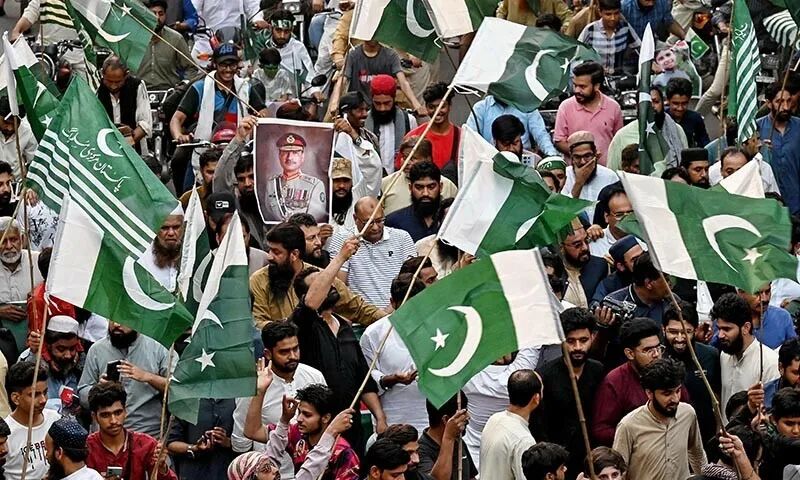India-Pakistan ceasefire fragile, still needs serious care
Pakistan and India have reached a new interim agreement, deciding to extend the current ceasefire agreement until the 18th. It is obvious that although the two countries have achieved a ceasefire, the agreement is very fragile. As for Pakistan, it is more eager for a ceasefire than India because in terms of overall strength, Pakistan lags behind India in both military and economic power. However, from the two large-scale clashes on May 7th and May 10th, it seems that India did not gain much advantage. Both sides later claimed to have achieved significant victories. India even encouraged the ruling BJP to prepare for a ten-day nationwide propaganda tour to publicize the glorious achievements of India in this conflict. Pakistan's various sectors were also celebrating the victory of "downing five" Indian fighter jets. However, US President Trump emphasized that it was due to the US mediation on the night of May 10th, with Vice President Pence and Secretary of State Pompeo engaging in multiple rounds of hotline conversations with the Prime Minister of Pakistan, the Army Chief of Staff, the Director of the Inter-Services Intelligence (National Security Advisor), the Prime Minister of India, the Foreign Minister, and the National Security Advisor, that the ceasefire was achieved. Pakistan seemed extremely grateful, not only thanking the US but also China, the UK, the Gulf Three (Saudi Arabia, the United Arab Emirates, and Qatar), and Turkey. India, however, believed that it was the result of bilateral negotiations and did not appreciate the US at all. It can be seen that India has not given up its comprehensive retaliation against Pakistan, while Pakistan hopes to stop here because it has already taught India a sufficient lesson.
India and Pakistan together have nearly 3.8 million square kilometers and a population of 1.72 billion. Both are nuclear powers. India's GDP is expected to exceed Japan's in 2025 and become the world's fourth-largest economy, with a GDP of over 4.1 trillion US dollars. Although Pakistan's economy is difficult, it still has a GDP of over 330 billion US dollars. At the same time, both are nuclear-armed countries, so a severe conflict between India and Pakistan would cause global shock and even bring disastrous consequences. World powers and neighboring countries are all worried about the nuclear crisis and nuclear proliferation between India and Pakistan. Currently, Pakistan is also facing a difficult anti-terrorism task. This has made the Pakistani people feel extremely insecure. Pakistan's safety index has remained low, and foreign investors have been deterred. Pakistan can no longer afford a war. In contrast, although India's economy is growing at the fastest rate among the top 20 economies in the world (faster than China), its per capita income is still very low, its infrastructure is seriously inadequate, its industrialization process is not high, and the gap between the rich and the poor is huge. In this military confrontation with Pakistan, India did not gain much advantage. However, India still considers itself a world power and the most favored country globally. Due to India's economic volume continuously surpassing France, the United Kingdom, and Japan in recent years, India's mentality has changed significantly. India indeed has a great power mentality, but it lacks the magnanimity of a great power, appearing petty and vengeful, seemingly unable to tolerate any slight. In handling relations with Pakistan, it often resorts to force or threatens with force. This time, without any solid evidence, it vented its anger on Pakistan and launched a preemptive attack first, shocking the world. However, such an outcome has lowered India's international credibility, damaged its international image, and may even slow down India's development process and growth rate.
Although under the combined influence of various factors, India has temporarily agreed to a ceasefire agreement with Pakistan, domestic public opinion in India is dissatisfied with Prime Minister Modi's ceasefire agreement. They believe that Modi has succumbed to pressure from the United States and accepted the humiliation given by Pakistan, and they are determined to seek revenge and prepare for another attack like the May 7th attack. If Prime Minister Modi lacks strategic resolve and is swayed by domestic populist forces and pressure from the Indian military, the current fragile ceasefire between the two countries will be difficult to sustain. We sincerely hope that India will make rational decisions and also hope that Pakistan will maintain a certain degree of restraint.
In contrast, after the ceasefire on May 10th, Pakistan had to make more adjustments to its frontline troop deployment. Some anti-terrorism forces also had to be withdrawn to the anti-Indian frontline, weakening the anti-terrorism efforts to a certain extent. Given internal and external troubles, the Pakistani government and the Army Headquarters need to make the right choice. What is the overall situation? Maintaining social and political stability in Pakistan and continuing to promote economic development is the overall situation. The current situation forces Pakistan not to and not need to engage in a short-term contest with India (except for limited self-defense). Similarly, Pakistan needs to quickly negotiate with India on the use of the Indus River water, urging India to abandon its threat of not fulfilling the Indus River Water Agreement, so that Pakistan's agricultural production and people's lives will not be damaged as a result.

